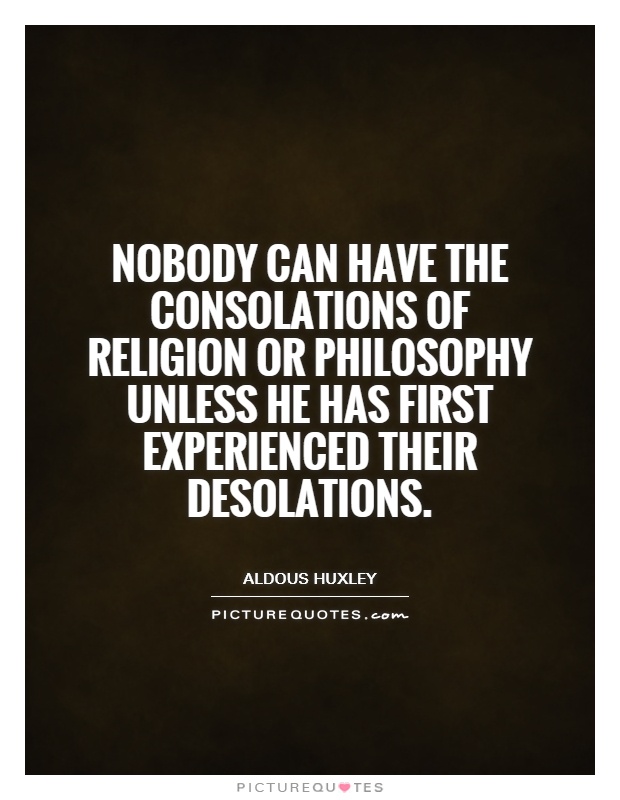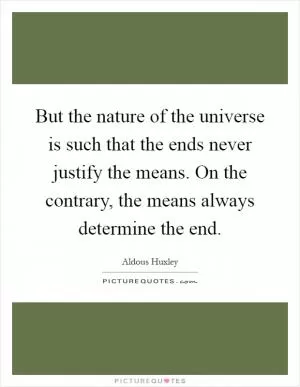Nobody can have the consolations of religion or philosophy unless he has first experienced their desolations

Nobody can have the consolations of religion or philosophy unless he has first experienced their desolations
Aldous Huxley, a renowned English writer and philosopher, is often associated with thought-provoking ideas and profound insights into the human condition. One of his most famous quotes, "Nobody can have the consolations of religion or philosophy unless he has first experienced their desolations," encapsulates the essence of his belief in the transformative power of suffering and introspection.Huxley's statement suggests that true understanding and appreciation of religious or philosophical teachings can only come through personal struggle and hardship. It implies that one must confront the darker aspects of life, such as pain, loss, and existential angst, in order to fully grasp the depth and meaning of spiritual or philosophical truths. In other words, one cannot truly appreciate the light without first experiencing the darkness.
This idea is reflected in Huxley's own life and work. Throughout his career, he explored themes of suffering, disillusionment, and the search for meaning in a seemingly chaotic world. In his seminal novel, "Brave New World," Huxley depicted a dystopian society where individuals are stripped of their humanity and individuality in the pursuit of happiness and stability. The novel serves as a cautionary tale about the dangers of sacrificing personal freedom and authenticity for the sake of comfort and security.
Huxley's own spiritual journey was marked by a similar quest for truth and enlightenment. He experimented with various forms of mysticism, including psychedelic drugs and meditation, in search of a deeper understanding of the nature of reality and consciousness. His experiences with altered states of consciousness and spiritual practices informed his later works, such as "The Doors of Perception," where he explored the relationship between mind-altering substances and mystical experiences.












 Friendship Quotes
Friendship Quotes Love Quotes
Love Quotes Life Quotes
Life Quotes Funny Quotes
Funny Quotes Motivational Quotes
Motivational Quotes Inspirational Quotes
Inspirational Quotes